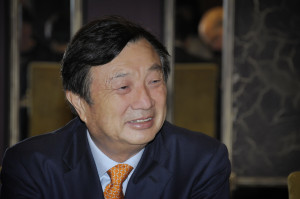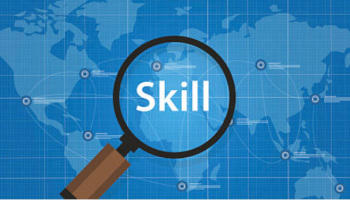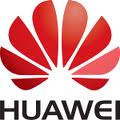 Ren Zhengfei, CEO and founder of Huawei, a leading global information and communications technology (ICT) solutions provider, today said the company is committed to bringing value and contributing to New Zealand’s digital economy.
Ren Zhengfei, CEO and founder of Huawei, a leading global information and communications technology (ICT) solutions provider, today said the company is committed to bringing value and contributing to New Zealand’s digital economy.
“New Zealand is one of Huawei’s most important strategic markets and is very valuable to us,” said Mr. Ren. “Huawei has been selected to help build a 4G/LTE and the Ultra-Fast Broadband (UFB) network in New Zealand. We will continue to deploy world-class, advanced communications technologies here, delivering the safest, most advanced networks for the nation.”
In April, Huawei was chosen to build Telecom New Zealand’s 4G/LTE network, which is expected to go live from October 2013. The contract followed Huawei’s selection in 2011/2012 as a core supplier for New Zealand’s Ultra-Fast Broadband (UFB) initiative. Huawei also serves as a key supplier to other major telecommunications operators in the country. Committed to enriching people’s lives through communication and innovation, Huawei also introduced the world’s first Maori language smart phone through the 2degrees local mobile network.
Visiting New Zealand this week, Mr. Ren also said: “New Zealand is a wonderful, progressive country that actively embraces the introduction of next generation telecoms infrastructure. This fosters the digital economy here and these investments will strengthen New Zealand’s global competitiveness and will help create future growth from across the global market. The booming digital economy in New Zealand in recent years will help the ICT industry globally to become more diversified, balanced and healthy. Within such a positive environment, Huawei actively cooperates to create and share
strategic benefits with our customers. We hope to strengthen and enhance the win-win cooperation model with the ICT industry in New Zealand through this visit, and hope in the future to extend such models to other Huawei operations around the globe.”
Huawei has been creating local jobs since it first opened its operations in New Zealand in 2005, and is deeply embedded in the New Zealand ICT ecosystem. Today, the company employs 120 people – 90{af589cdba9d77786c8c861317dbad60bba1e2ebbf56e2ffab874a1b59fde9ce3} were hired locally. Huawei intends to employ even more staff and increase its investments in New Zealand and grow with the nation. Over the last three years, Huawei’s total direct investment in New Zealand was NZ$139 million. Huawei has also entered cooperation agreements with a number of New Zealand-based companies.
In addition, Mr. Ren highlighted the importance of addressing one of the key challenges that comes with broadband ubiquity both in New Zealand and globally – cyber-security. “We need to ensure a stable network in any circumstances, especially when earthquakes, tsunamis and other emergencies occur. This is the ultimate social responsibility of the network infrastructure manufacturers. And not only that, as a leading global company, Huawei attaches great importance on cyber-security,” Mr. Ren said. “Cyber-security is a significant challenge facing our industry globally today. The solution must involve governments, telecommunications operators and ICT companies, including Huawei and our peers, as well as end users coming together to take collaborative, solutions-oriented, multi-lateral approaches to mitigate the risk. Huawei encourages an open, transparent and collaborative approach to driving improved standards for cyber security.”
When facing the challenge of US network security, Mr. Ren said: “Huawei equipment is almost non-existent in networks currently running in the U.S. We have never sold any key equipment to major US carriers, nor have we sold any equipment to any U.S. government agency. Huawei has no connection to the cyber security issues the U.S. has encountered in the past, current and future.





